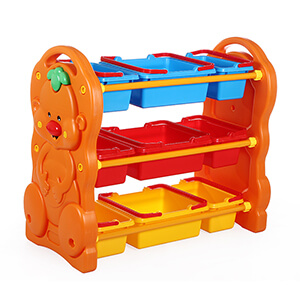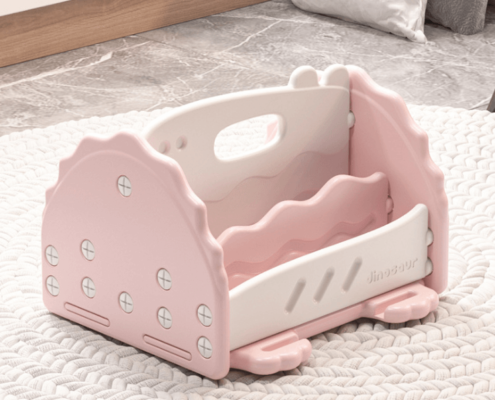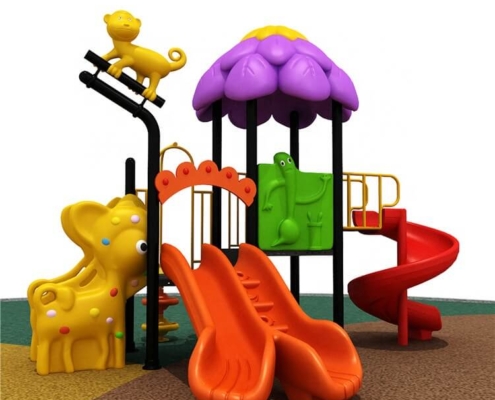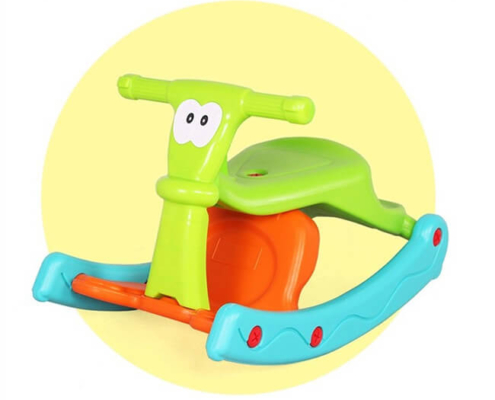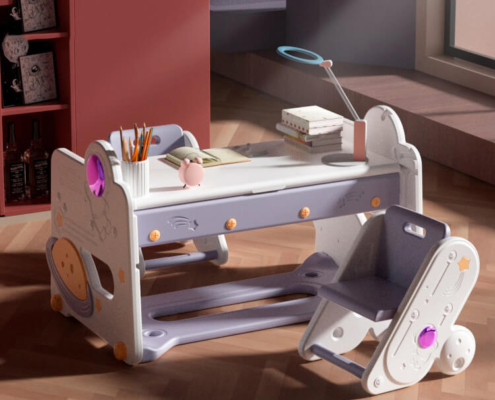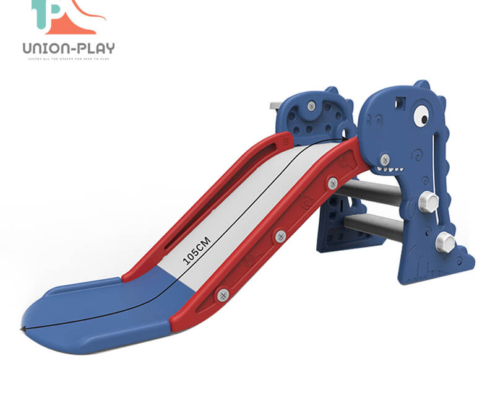How can parents enhance parent-child relationship by playing games with their children?
In China, all schools are closed from June to August every year. Whether it is a junior high school, a university, or even a kindergarten, you will have a vacation of up to 2 months. Children can have fun at home.
High school students and college students may use these two months to participate in social practice, and in addition to earning a small amount of compensation, they can exercise themselves.
For young children, they must be taken care of by their parents. At this time, many parents will start to worry about how to take care of their children at home.
Parent-child activities are a good choice, which can help promote relationships with children.
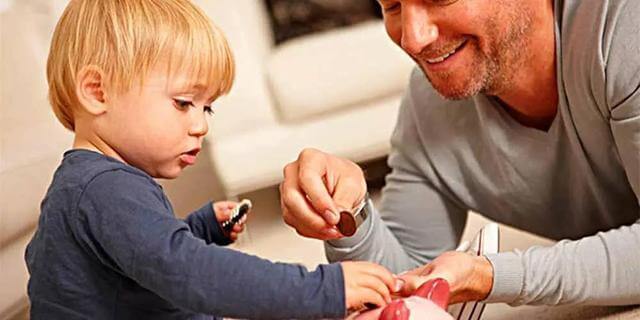
Parents accompany their children to participate in some activities that are conducive to the growth of children during the holidays, to enhance the relationship between the children and their parents, and to allow the children to make many friends. Through these activities, children can cultivate the character of participating in exploration, so that children can develop wholeheartedly and healthily in childhood.
Parent-child activities help promote emotional exchanges between parents and children. Feelings are gathered by communication. No matter which kind of emotional sublimation, it needs communication to complete.
In the process of parent-child games, to make the game better, parents will formulate the rules of the game, and ask children to abide by the rules of the game, not to be shameless; parents will tell children that toys have a fixed storage place, if not After playing, you must pack it up by yourself and put it back in place;
In addition, reasonable playtime will be set, so that children can’t stop playing until they are tired, nor can they affect eating and sleeping due to play. If children become accustomed to these requirements and practices, they will transfer to their own real life.
01
The benefits of “parent-child games” for children
First, develop children’s cognitive and language skills
The design of parent-child activities should enable children to play their known abilities during the game, and also allow children to guide and develop their new abilities.
For example, in the “Small Commodity Sale” game, parents first put fruit and vegetable cards on the wall, and then give their children some other cards as “money.” Let the children buy fruits or vegetables, to induce the children to name the fruits or vegetables.
When the child says the name of the item in the card, he takes the corresponding card to the child and collects the child’s “money.” It is also possible to exchange roles with children, allowing children to act as waiters and parents to become shoppers.
This game can develop children’s cognitive and language skills, and can also let children know about some superficial business relationships.
Second, it is conducive to the development of children’s social relationships
The three people in a family belong to a relatively small group. Parents and children communicate with each other, which can exercise children’s cognition of the relationship.
There are many types of parent-child games. Some games are role-playing, which involves the assignment of roles, and there will be some cooperation. This is very beneficial for children to go to kindergarten in the future, communicate with other children, and play together.
After the training of parent-child games, children will not be at a loss or know what to do when getting along with other people, whether they are with adults or children, but will be able to actively and enthusiastically communicate with others.
Third, the development of the child’s personality
In addition to blood relationships, there are other social relationships between people. For example, in the relationship between friends and lovers, parent-child games can not only promote the development of parent-child relationships and close the emotions between parents and children; it also allows children to learn about other social relationships in games and promote the development of children’s personality.
In role-playing games, because the roles played in parent-child games are different, children can experience different social roles, which can cultivate the development of children’s different roles and different personalities. Let your children know that in real life, there are other social relationships besides parents.
02
What should be paid attention to in “Parent-Child Games”
Game props should be selected carefully
Children are very interested in toys, so parents should be very careful when choosing play toys. First, we must ensure that toys are safe and harmless, because children often take toys as snacks to lick or stuff them into their mouths, or take things to eat and rub their eyes without washing their hands after playing. So safety is the most important thing to pay attention to.
Choose some educational or artistic toys. The choice of toys is not to follow the public and choose those popular toys, but to choose those suitable for children’s development. Or you can make some environmentally friendly small toys at home, which can increase the interaction with the child and is also environmentally safe and safe.
Do not choose games based on the value that parents think
When making or choosing a parent-child game, parents must determine a concept that this game is for the growth and learning of the child, and the child is the main object of the game, not the parent.
Therefore, parents should not use their values to limit their children’s choices, but let their children choose games they are interested in and meaningful.
Importance of gaming habits
Some parents may think that parent-child games are simply playing with their children, so they ignore the children’s bad habits during the game.
Good play habits will be reflected in the children’s future life, which is very important for the children’s future growth.
Let the children respect the rules of the game in the game so that the children will respect the rules of the school and the rules of the society in the future school life and social life.
03
Three simple “parent-child games”
The first type, word recognition game
Parents can make some small cards by themselves with text and pictures; if they don’t know how to do it, they can also buy some cards with pictures online. The content on the card can be things commonly found in daily life, such as bowls, spoons, plates, etc.
Put the cards on the corresponding objects, and the parents took some cards and spread them on the floor and asked the children: Baby, which one is the bowl. If the child can confirm it, praise the child in time; but if he does not recognize it, he must patiently tell the child which one it is, and not scold the child.
The second type, role-playing games
Parents may feel that parent-child reading will be monotonous and boring, and children may not be very interested. Then, you can try role-playing games, such as the game “I am a little traffic policeman”. The parent first becomes a traffic policeman and the child becomes a driver. Let the child make a driving action with his fist in front of his chest, and say “I am a traffic policeman.” Didi” sound. Then, the parents teach the baby the traffic rules, such as stop at a red light, go at a green light, etc.
Parents can also exchange roles with their children. Parents will be the drivers and the children will be the traffic police, and then play the game again. This form of a game not only stimulates children’s interest but also tells them to obey the traffic rules and let them know the traffic rules of stopping at a red light and driving on a green light.
The third type, sports games
Now that the epidemic situation has improved, parents can take their children to the community and exercise. You can bring a small football or basketball, play football or basketball with your child, and let the child exercise, which is also good for the body.
When you go home, you can also choose not to take the elevator and take your children to climb the stairs. While climbing the stairs, you can teach your children to count. In this way, you can also learn in the game, and the child will not feel that counting is boring and does not want to learn.
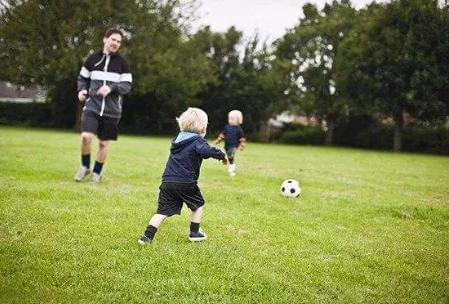
Time will pass quickly. Children are growing up day by day. You must cherish the time you spend with your children and don’t miss important moments in their growth. Parent-child games can not only promote the relationship with the child but also cultivate the character of the child. Parents should act quickly!


